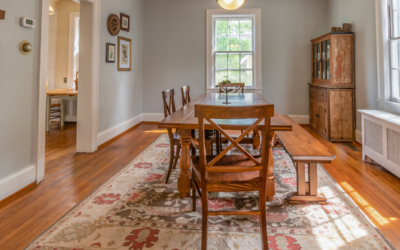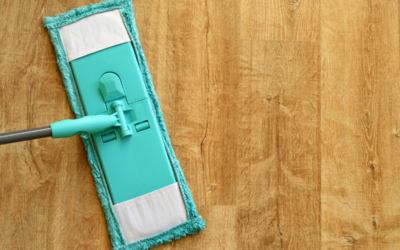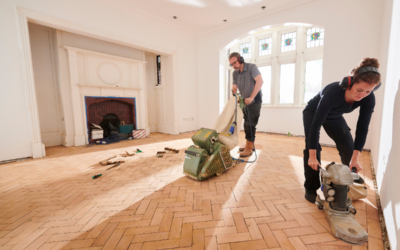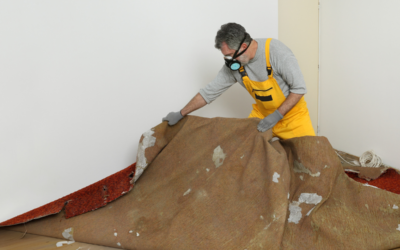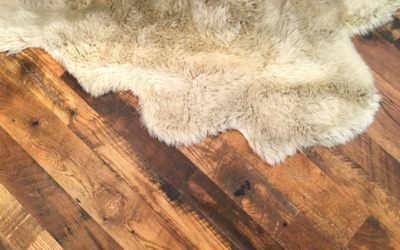You May Be Surprised About Wood Flooring Protections
Your hardwood floors add value to your home, so you want to protect them from peril. One way you can do this is by choosing the right homeowner’s insurance policy.
Keep reading to find out if your wood flooring is protected, and whether your insurance will cover refinishing, repair, or new installation.
Are Hardwood Floors Insurable?
The simple answer to the question about whether hardwood floors can be insured is “yes.” Hardwood flooring is very common in homes across the country, and most homeowner’s insurance policies can include options to protect them. Protection is available in standard policies or specialized coverages.
Are My Floors Included In My Homeowner’s Insurance Policy?
To find out whether your hardwood floors are included in your homeowner’s insurance policy, read through your coverage details from your carrier. You can find this information in the packet you received when you signed up for insurance, or you can find details online when you sign in to your carrier’s app or website.
You likely told your agent all about your house when you requested an insurance quote, including the age of your roof, whether you have crown molding, the number of fireplaces, the type of exterior siding, and more. Agents usually ask about your flooring type, too.
Refer to your policy to check that your flooring type was properly listed. Because hardwood flooring is more expensive to replace than builder-grade carpeting, vinyl, and other materials, you’ll want to declare your flooring type to your insurance company before you ever need to make a claim.
You’ll also want to check that your policy covers the main sources of wood floor damage; if it doesn’t, talk to your agent about how to strengthen your policy protections.
Does Insurance Cover Damage to My Wood Flooring?
Depending on your policy and the condition of your flooring, your homeowner’s insurance may cover hardwood floor refinishing or repair. Every policy is different, so carefully read yours and never take advice from a blog on the internet!
If you have a fairly standard homeowner’s insurance policy, it will pay for a repair caused by a covered peril, like if wind blew off a section of your roof and let in rainwater, or if an exterior wall was damaged after a car- or tree-limb-related incident.
However, if you do not have flood insurance, your insurance policy may not cover damage due to water flooding without the involvement of a different root cause. Similarly, damage due to an earthquake may not be covered without earthquake coverage. A standard homeowner’s policy also may not cover termites or mold. It certainly won’t cover normal wear and tear.
Insurance may also not cover hardwood floor repair or refinishing if your adjuster determines that you could have prevented the damage in the first place, but were negligent. For example, did you knowingly ignore that your floor’s finish was worn through, which predisposed it to damage?
Does Insurance Cover Hardwood Flooring Replacement?
In the same cases that your insurance will or won’t cover hardwood floor refinishing or repair, your policy may or may not cover replacement.
If your floors are covered in your policy, it is likely that it will provide payment or reimbursement for total floor replacement if the damages were too severe for repair or refinishing.
If you believe your floors are too damaged for repair or refinishing, ask a hardwood flooring professional to look at your floors and make an assessment. You can use their report to negotiate with your homeowner’s insurance.
If Insurance Covers My Hardwood Floor, How Much Do I Have to Pay Out-of-Pocket?
If your hardwood floor damage is covered in your policy, then you’ll only need to pay your deductible out of pocket. Your insurance carrier will pay for the rest of the cost of the approved repair.
When paying wood floor companies with your insurance payout, never pay up front. Make sure the company you choose understands the repair that your insurance is covering. Submit final receipts and documentation to your insurance company when the repairs are complete.
Carefully Read Your Insurance Policy!
Never assume something is or isn’t covered by your insurance policy. You may be surprised! Check with your insurance provider to find out your options for repairing, refinishing, or replacing your hardwood floors.
Keep in mind that named peril policies mean you’re only protected against 16 perils, while open peril policies mean you’re covered against all causes, except specific listed exclusions. You may want to add sewer backup coverage, a mold rider, or flood insurance to protect your hardwood floors against major sources of water damage.




